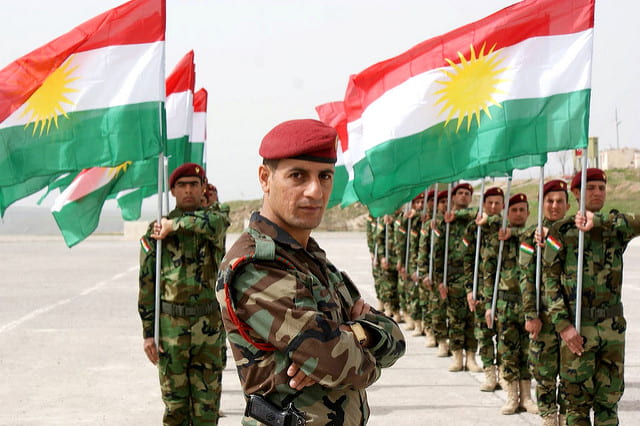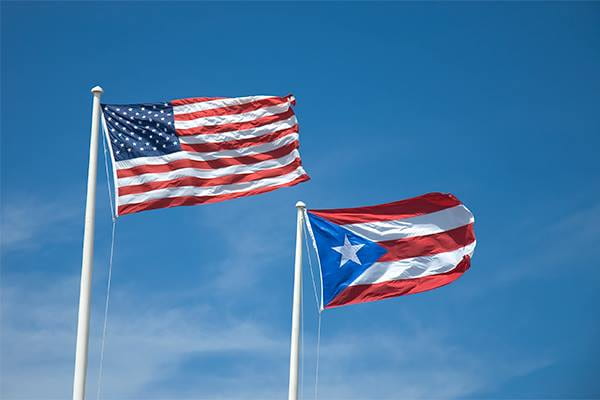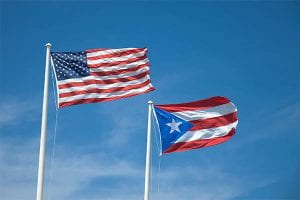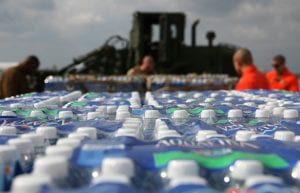
Many years ago, or so the story goes, a young, Kurdish man named Mem fell deeply in love with the Emir’s sister – a beautiful, young woman named Zin. This Emir, however, had in his service an ambitious young minister named Beko who coveted the affections of Zin for himself and, thus, set about conspiring to undermine his competition. Ultimately, his machinations proved to be successful, creating a tragic series of events that concluded in a similar vein to that of two far more famous, star-crossed lovers. Mem perished alone in the darkest corner of the Emir’s dungeon, and upon discovering this, Zin followed her lover into the afterlife.
At the funeral, the two lovers were buried side-by-side, but the grave was not yet full. Entranced by the beauty of Zin even in death, Beko leaned over her grave to stare, enraging the Emir:
The mausoleum of the two lovers still stands today in the city of Cizre, the point at which the borders of Turkey, Iraq, and Syria meet. Yet this story possesses a significance far greater than simple literary achievement. It is the recurring tale of the Kurdish people and their struggle for self-determination.
In this explicitly nationalist story, Mem is a metaphor for the Kurds, while Zin represents the Kurdish homeland. As much as they long for each other, however, there is always a Beko, a meddling outsider, a Turk, a Persian, an Arab who seeks to divide them. The empires of these outsiders may fall, but each plants, in its death throes, the seeds for a new thornbush that will once again deny Kurds self-determination. Ultimately, the modern states of Iran, Iraq, Syria, and Turkey are merely the latest iteration of this thornbush.
Turkey and Iraq threaten Kurds over their independence referendum
Mountain Turks or Kurds?
In the Middle East, citizenship and nationhood strongly revolve around the concept of identity primordialism, involving, among many other factors, a common history, language, culture, and ethnicity. It is primarily on this basis that its enemies seek to deny the Kurdish people self-determination — their right to establish a nation of their own and exercise uninhibited control over their own affairs.
For centuries, states portrayed their Kurdish minorities as merely “ignorant and reactionary ‘Mountain Turks’ speaking a debased [combination] of mixed Turkish, Persian, and Arabic.” This is a sound strategy in the sense that it – if true – nullifies the linguistic and ethnic requirements needed to justify a primordial basis for self-determination. As can be expected, however, the Kurds believe otherwise. Masoud Barzani, the current Kurdish leader, succinctly rejected these claims, stating that “from World War One until now, [Kurds] are not part of Iraq. We have our geography, land, and culture. We have our own language. We refuse to be subordinates.”
Ultimately, this leads to the question of who to believe. Are the Kurds simply backwards, uneducated mountain people? Or do the Kurds constitute a distinct people who have been unfairly portrayed by their opponents?
The Linguistic Test
Despite his Marxist inclination to dismiss the nation as a purely “imaginary community,” Benedict Anderson nevertheless made a crucial observation, namely that language possesses “central ideological and political importance” as the “private property” of a specific ethnic group. Ehmedê Xanî – the Kurdish author of Mem u-Zin – recognized this at an early date (1692 AD), exhorting the Kurds to become literate in their own language “so that people won’t say that […] all sorts of people have their books and only the Kurds are lacking.” Unfortunately, the Kurds ignored his warning, granting their enemies a powerful weapon in the fight to deny them self-determination on the claim that they lack a language of their own.
There are three criteria by which one can evaluate this claim: (1) mutual intelligibility, or the ability of two people speaking two different languages to understand each other; (2) uniqueness in terms of letters, sounds, and words; and (3) recognition.
In order for languages to be mutually intelligible, they must be descended from the same language tree. Although Kurdish is a member of the Indo-European language family, neither Turkish (Altaic) or Arabic (Afroasiatic) can claim the same, meaning that they are not mutually intelligible. Persian, on the other hand, is a member of the Indo-European language family, but it is not mutually intelligible with any Kurdish dialect either.
The origins of these differences are disputed. Some claim it is a result of the mountainous geography making communication difficult, while others claim Kurdish ultimately descended from a language that predates the arrival of Indo-European languages. However, it is known for certain these differences are significant. Aside from primarily using the Latin alphabet (as opposed to the Arabic one), Kurdish also possesses differences in sounds, grammar, and words. This is evidenced in Mem u-Zin where “out of 26,560 words, […] 19,601 (74%) of them are Kurdish, 6,015 (23%) are Arabic, 918 (3% are Farsi), and 26 (less than 1%) are Turkish.”
As in the case of nations, recognition by others represents an important signifier of linguistic legitimacy. Kurdish is recognized as an official language only in Iraq, but only under duress from the United States. Unofficially, both historic and contemporary bans on the use and teaching of Kurdish by the Iranian, Iraqi, Syrian, and Turkish authorities represent de facto recognition of their distinctiveness. After all, is there a point in banning a language that is your own?
News coverage of Saddam Hussein’s chemical attack on the Kurds
A History of Suffering
Despite the fact that scholars disagree on much regarding nationalism, all can agree that a nation – whether civic, primordial, or imagined – requires “a historic continuity” for use “as a legitimator of action and cement of group cohesion.” Such cohesion becomes even stronger when marked by having “suffered together, […] for having suffered together unites more than joy.”
Although the Arabs, Persians, and Turks deny the Kurds their right to self-determination, the Kurds arguably possess a much stronger claim to the northern Iraq, northeastern Syria, eastern Turkey, and northwestern Iran than their current owners. The Kurds resided in these lands at least as early as 2000 BC when they were first mentioned by the Sumerians. Over one thousand years later, the Kurds remained. Ancient Greek historians, such as Herodotus and Xenophanes, described them, as did Strabo during the Roman Empire. Without fail, they always resided in these same lands, even establishing independent kingdoms that still existed at the beginning of the nineteenth century.
Throughout this period, however, the majority of Kurds were conquered by one foreign empire after another. Some Kurds, such as Saladin – the Egyptian Sultan who recaptured Jerusalem from the Crusaders – rose to great heights, but the vast majority were not treated well, to say the least. This served as the impetus for Mem u-Zin, which was passed on orally until Ehmedê Xanî codified it in 1692 AD as one of the first explicitly nationalist pieces of literature to ever be written.
Following the First World War, the suffering experienced by the Kurds began in earnest. They were promised independence in President Woodrow Wilson’s Fourteen Points, the Covenant of the League of Nations, and the Treaty of Sèvres. Ultimately, these promises came to naught as the Turks under Atatürk forced the allies to invalidate the treaty, which was replaced by the treaties of Lausanne and Ankara. These two treaties split the Kurdish populated regions among the newly created nations of Iraq, Syria, and Turkey, effectively ending Kurdish hopes for a negotiated independence at this point in history.
However, it did not end agitation for independence by the Kurds, who refused “to accept subordination to the Arabs who, like the Kurds themselves had until then been a subject race.” These feelings were magnified by the harsh treatment of the Kurds by the new nations, which colluded to help each other suppress the Kurds. The Turks executed and imprisoned tribal leaders, students, politicians, and intellectuals, while ethnically cleansing Kurds from some areas. Furthermore, Kurdish youths were forced into boarding schools through which they could be ‘Turkified.’
In Iran, a brief Kurdish state was founded, but it ended after several months following the Allied withdrawal. The leaders of the state were hanged, while other participants were rounded up and imprisoned. Today, even being suspected of being sympathetic to separatist groups can lead to torture, imprisonment, or execution. Meanwhile, the treatment of Kurds in Syria was no better. Members of political organizations were routinely arrested. Hundreds of thousands of Kurds were deprived of their citizenship and deported, their property given to Arab settlers in an attempt at Arabization of the region. In all three of these countries, the Kurdish language was banned.
However, the Kurds have been consistently treated the worst in Iraq, beginning from 1961 to 1963 when the government massively bombed Kurdish towns and cities from the air. Under Saddam Hussein, a systematic attempt to commit genocide against the Kurds occurred. Almost three hundred thousand Kurds were forcibly relocated to southern Iraq, and during the process eight thousand young men and teenagers are believed to have been executed en masse. According to Human Rights Watch, this was part of a “long-standing campaign that destroyed almost every Kurdish village in Iraq […] and displaced at least a million” Kurds. The campaign ultimately ended with the chemical weapons attack on the town of Halabja that killed several thousand men, women, and children.
All of these actions constitute gross violations of every human rights document ever written, including the Universal Declaration of Human Rights and the International Covenant on Civil and Political Rights.
Kurdish President Masoud Barzani’s justification for the Kurdish independence referendum
The Last Thornbush?
Following the overthrow of Saddam Hussein, one would expect that things dramatically improve for the Kurds. While there was some improvement, namely that they were no longer being massacred in the hundreds of thousands, the Kurds have merely traded a Pan-Arabist government that despised them on account of their ethnicity for a Shia-dominated government that despises them on account of both their ethnicity and religion, Sunni Islam. The supposedly democratic government of Nouri al-Maliki regularly discriminated against Sunni Arabs and Kurds: delivering inadequate public services to non-Shia Iraqis, cutting power to non-Shia areas, purportedly arresting thousands of Sunnis and Kurds based on their ethnicity, and reneging on constitutional agreements with both as well.
Ultimately, this rampant discrimination pushed many Sunnis into the waiting arms of the Islamic States; however , the Kurds resisted such radicalization. Instead, they fought alongside the United States, as well the Iraqi central government that oppressed them, against the Islamic State. By all accounts, the Kurds suffered from the brunt of the fighting, retaking large portions of Iraq and capturing the Islamic State’s capital of Raqqa in Syria.
It is in response to the previously mentioned discrimination, as well as their role in defeating the Islamic State, that Kurds decided that they are finally ready for an independent state of their own. The question now becomes, do they deserve it? The answer is an unequivocal yes for the following reasons:
1) The Kurds meet all of the criteria for nationhood and self-determination, including possessing their own distinct language and a common history.
2) The Kurds have been promised – through a variety of international agreements – independence for over a century. These promises should be honored in order to provide legitimacy to other international agreements on human rights, which also rely on their participants living up to their commitments.
3) The independence referendum occurred peacefully with both high turnout (72%) and overwhelming support (93% in favor).
4) The Kurds rejected radicalization in face of discrimination and persecution, and instead, fought alongside the United States against the Islamic State.
5) The Kurds have been treated harshly by every government that has ruled over them, even committing crimes against humanity against them.
6) The Kurds, unlike the Catalans, will actually be achieving sovereignty.
Throughout their history, the Kurds suffered greatly, but with uncommon resilience and strength, on behalf of their ethnicity. With each passing decade, however, it seems to grow worse. For that reason, it is high time that the world intervene on their behalf. This should be done not only to stop impending bloodshed in the aftermath of the fall of Kirkuk to Iraqi forces, but in order to assist the Kurds in permanently removing the thornbush that stands between them and their beloved, and long overdue, homeland of Kurdistan.



